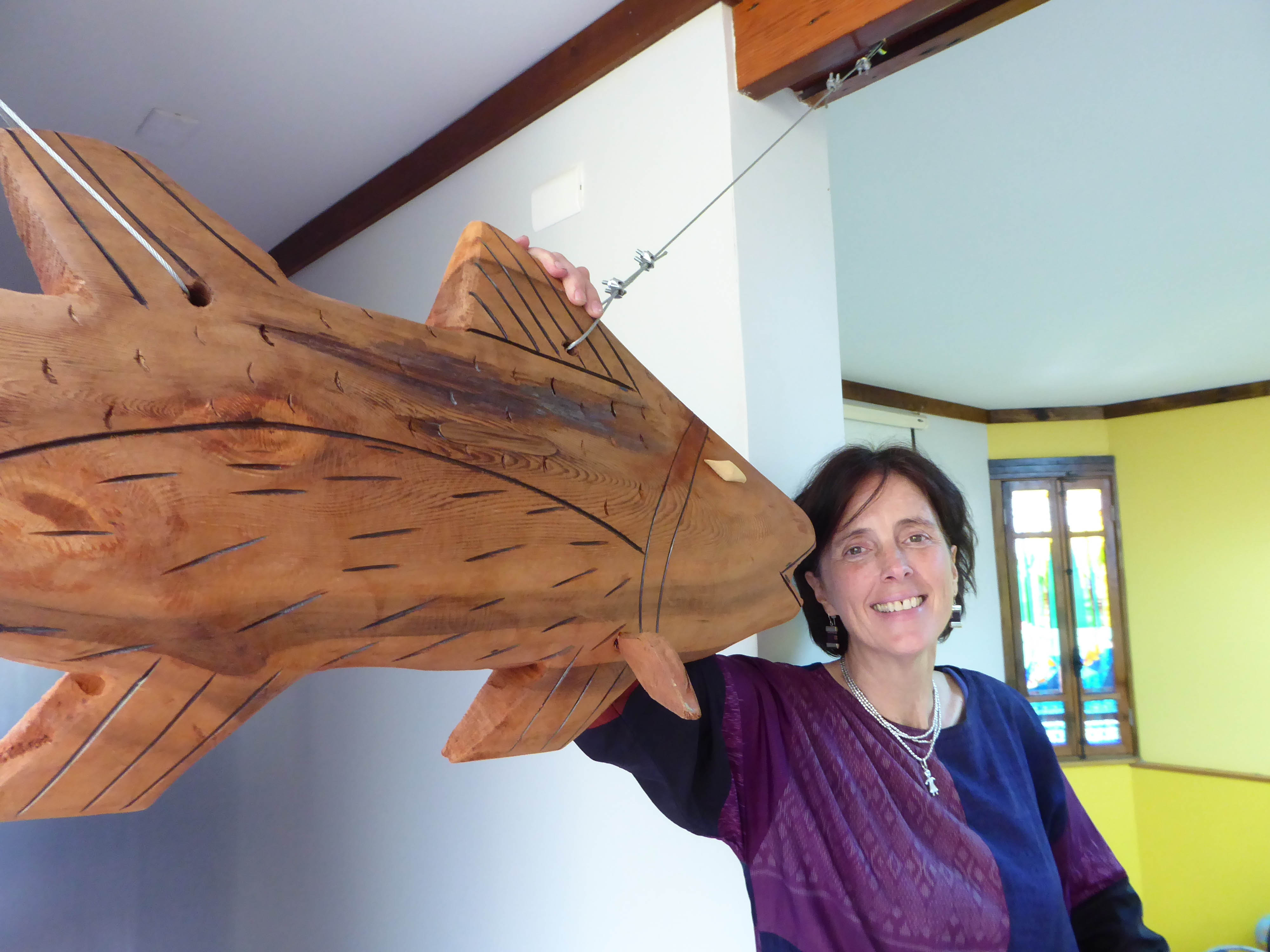Lab
Whitlock Lab
|

|
Statement of Research Interest
BASIC RESEARCH
We are investigating how intrinsic genetically controlled programs and extrinsic factors in the internal and/or external environment interact to form the nervous system. Specifically we are interested in the differentiation of sensory neurons, glia, and neuroendocrine cells. The olfactory sensory arises from the neurectoderm and generates the neurons necessary to sense the external world, thus is in direct contact with the outside world. In contrast the neuroendocrine cells of the hypothalamus, once thought to arise from the olfactory sensory system, respond to changes in the internal environment where hormone levels can control the generation of new neuroendocrine cells. We have proposed an exciting new model for olfactory system development (Torres-Paz & Whitlock, 2014) where our most recent data support the presence of cell types characteristic of the central nervous system in the olfactory epithelium of developing and adult zebrafish (Gonzalez et al., submitted)...as we say in Chile Bakan!! (Cool)
OUTREACH:
Ciencia Al Tiro (Science Immediately) is an Outreach program Dr. Whitlock developed in 2008 to encourage interest in science and technology. Our inspiration was to help the situation of education in Chile where there is an extremely large difference in the quality of education among schools. This inequality in education is driven and maintained by the extreme inequality in income distribution in Chile (The Economist, December 13, 2007). Thus, because the poor quality of education in Chile is an urgent problem, we named the program “Ciencia Al Tiro” (Science Immediately).
We have published a book "La alegria de la Ciencia" (Dec 2014) and recently completed a series of short videos for television based on the book. For more information and video clips see: www.cienciaaltiro.cl
APPLIED SCIENCE
We have developed Aquaponics and energy efficient technologies in Chile. Dr. Whitlock is certified in solar thermal design and Aquaponic Systems. The years of working with salmon and then zebrafish have proved invaluable to developing recirculating energy efficient systems for Aquaponics. Concurrently we are working to develop a national line of Koi by selective breeding. See more at Ciencia Que Pesca: El futuro es saber (Science that grabs you: the future is knowledge) www.cienciaquepesca.cl
We are investigating how intrinsic genetically controlled programs and extrinsic factors in the internal and/or external environment interact to form the nervous system. Specifically we are interested in the differentiation of sensory neurons, glia, and neuroendocrine cells. The olfactory sensory arises from the neurectoderm and generates the neurons necessary to sense the external world, thus is in direct contact with the outside world. In contrast the neuroendocrine cells of the hypothalamus, once thought to arise from the olfactory sensory system, respond to changes in the internal environment where hormone levels can control the generation of new neuroendocrine cells. We have proposed an exciting new model for olfactory system development (Torres-Paz & Whitlock, 2014) where our most recent data support the presence of cell types characteristic of the central nervous system in the olfactory epithelium of developing and adult zebrafish (Gonzalez et al., submitted)...as we say in Chile Bakan!! (Cool)
OUTREACH:
Ciencia Al Tiro (Science Immediately) is an Outreach program Dr. Whitlock developed in 2008 to encourage interest in science and technology. Our inspiration was to help the situation of education in Chile where there is an extremely large difference in the quality of education among schools. This inequality in education is driven and maintained by the extreme inequality in income distribution in Chile (The Economist, December 13, 2007). Thus, because the poor quality of education in Chile is an urgent problem, we named the program “Ciencia Al Tiro” (Science Immediately).
We have published a book "La alegria de la Ciencia" (Dec 2014) and recently completed a series of short videos for television based on the book. For more information and video clips see: www.cienciaaltiro.cl
APPLIED SCIENCE
We have developed Aquaponics and energy efficient technologies in Chile. Dr. Whitlock is certified in solar thermal design and Aquaponic Systems. The years of working with salmon and then zebrafish have proved invaluable to developing recirculating energy efficient systems for Aquaponics. Concurrently we are working to develop a national line of Koi by selective breeding. See more at Ciencia Que Pesca: El futuro es saber (Science that grabs you: the future is knowledge) www.cienciaquepesca.cl
Lab Members
| Calfun, Cristian Post-Doc | Ceriani, Ricardo Graduate Student | González, Pablo Graduate Student |
| Palominos, M Fernanda Graduate Student | Moscoso, Andrea Fish Facility Staff | Órdenes, Trinidad Fish Facility Staff |
| Tine, Eugene Mbar Technical Staff |
